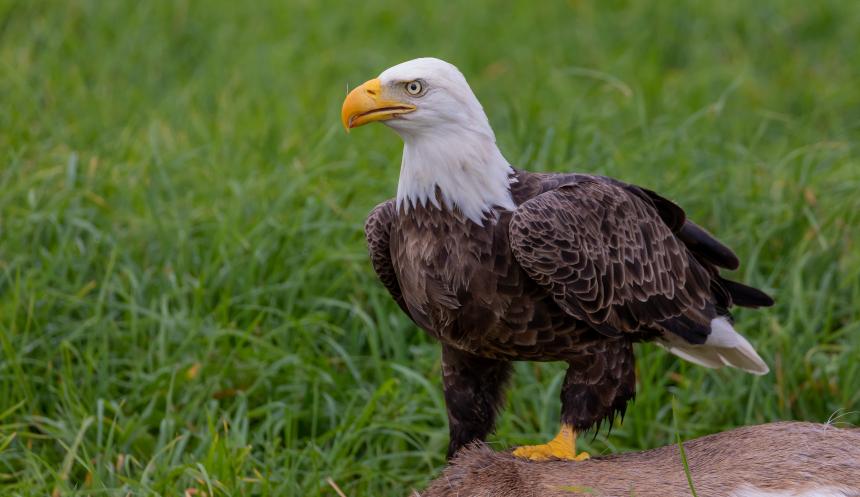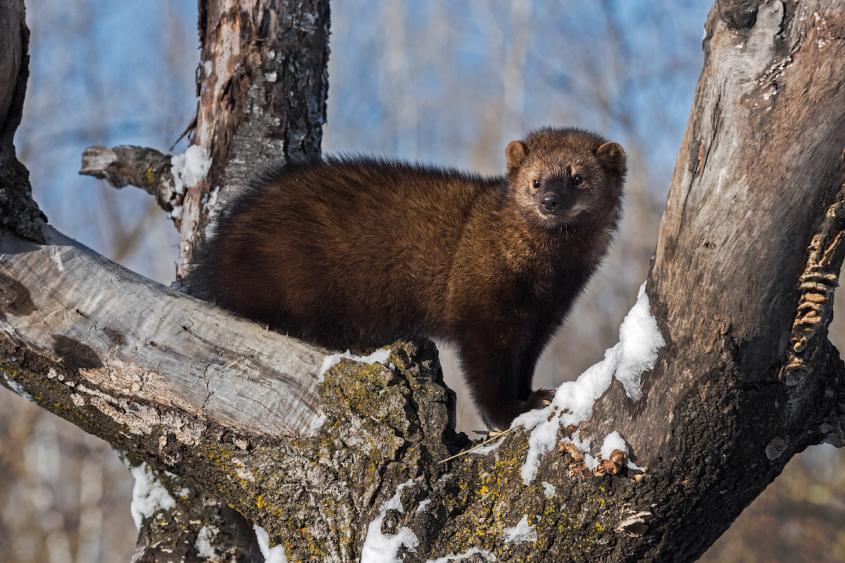News

For Your Information
January 18, 2022
Bald eagles are considered a recovery success in the U.S. after rebounding from near extirpation due to widespread use of DDT. Although abundances of bald eagles have increased since DDT was banned, other contaminants have remained in the environment with unknown influence on eagle population trends.

January 17, 2022
Environmental DNA techniques can detect a deadly virus in amphibian ponds, giving wildlife managers critical information about how to best protect vulnerable amphibian species.

January 03, 2022
The New York State Department of Environmental Conservation recently renewed the New York State Wildlife Health Program for $6.4 million over five years. This partnership has enabled Cornell to work with the state’s wildlife biologists on threats that affect all of New York's wildlife.

December 14, 2021
Cornell's Dr. Robin Radcliffe and his research team won a 2021 Ig Nobel for their work in Namibia on methods of relocating black rhinos—which is often vital to protect the critically endangered species from poachers.

December 10, 2021
Dr. Martin Gilbert, Wild Carnivore Specialist at the Cornell Wildlife Health Center, has worked extensively documenting the threat of canine distemper virus (CDV) to endangered Amur tigers in the Russian Far East. He is now working to determine the threat of CDV to other tiger subspecies.

December 09, 2021
There is no safe level of lead for any wildlife species, and a hunter’s ammunition choice can mean life or death for scavenging wildlife.

Blog
December 07, 2021
Cornell veterinary student Hery Ríos-Guzmán, DVM '24, writes about how the AQUAVETⓇ I Program has helped him feel better prepared for a future as an aquatic veterinarian.
November 23, 2021
This female wild turkey was treated at Cornell’s Janet L. Swanson Wildlife Hospital after being attacked by a dog. The wild bird is expected to make a full recovery and will be eventually released back into the wild.

November 22, 2021
The Wildlife Disease Association highlights Cornell wildlife veterinarian Dr. Robin Radcliffe and his team, who were awarded an Ig Nobel prize for their rhino health research.

November 19, 2021
The Cornell University College of Veterinary Medicine launched its new Department of Public and Ecosystem Health, linking interdisciplinary One Health work that benefits the well-being of people, animals and the environment.
